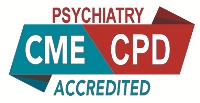Arif Pendi
University of California Irvine, USA
Title: Depression severity and stigmatized beliefs in Emirati university students: Preliminary findings of a crosssectional study
Biography
Biography: Arif Pendi
Abstract
Introduction: Depressive disorders constitute a serious mental health issue in university students across the world. However, the social stigma surrounding mental illness and depression in particular, must be accounted due to emerging evidence indicating that stigmatized beliefs mediate treatment-seeking behavior. Depression specific stigma can be divided into two components: Personal and perceived beliefs. The former refers to one’s own beliefs surrounding depression while the latter refers to one’s beliefs about others’ perceptions of depression. It was hypothesized that greater depression severity would be associated with more stigmatized beliefs.
Methodology: A cross-sectional study was conducted at a university in Dubai, United Arab Emirates. The survey contained a socio-demographic questionnaire, Patient Health Questionnaire-9 (PHQ-9) and Depression Stigma Scale (DSS) and was disseminated online to university students. Depression severity in the sample was determined by applying the PHQ-9 summed-item scoring method and the relationship to personal and perceived stigmatized beliefs (DSS) was explored with t-test. A series of linear regressions were used to identify predictors of personal and perceived stigma.
Findings: In the sample, 39.5% of respondents reported moderate to severe depression severity. This more depressed group exhibited less perceived stigmatized beliefs compared to their counterparts (p=0.048). In addition, heterosexuality and non-Indian ethnicity constituted predictors of perceived stigma (p=0.004 and p=0.007, respectively).
Conclusions: Depression severity was not associated with greater personal of perceived stigma; in fact, moderate to severe depression was associated with less perceived stigma. Nevertheless, heterosexual and ethnic Indian students may benefit from efforts to reduce perceived stigma.

